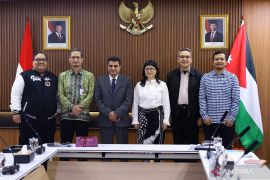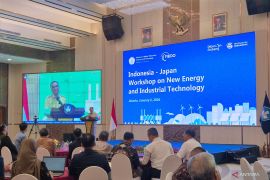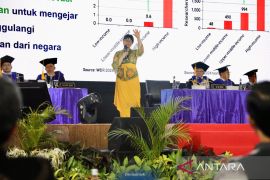Jakarta (ANTARA) - Deputy Minister of Higher Education, Science, and Technology Stella Christie stated that establishing new universities in various regions is not sufficient to ensure equitable access to higher education nationwide.
According to Christie, mapping obstacles based on the shortcomings of existing universities in various regions is more important.
"The policies should not build new universities. Every policy is part of the system. If we want to fix the problem, do not create a new problem. The budget is always limited," she noted at an event in Jakarta on Wednesday (October 30).
She noted that the budget used to build new universities can be diverted to improve the quality of existing universities.
Christie emphasized that the budget cannot be utilized only to build new universities to equalize higher education.
"We should be able to balance the budget. Calculate carefully and optimize the limited budget. We should pick the best and most optimal (program), the best bang for the buck, in order to improve the quality of our higher education," she remarked.
She noted that achieving equity in higher education should not be interpreted as standardizing quality across all geographical areas. In a broader landscape, if all universities have the same quality, it will be difficult to equate it with economic growth.
Christie assessed that equality in higher education quality would eliminate competition among universities to meet industry requirements and workforce demands.
"These competitions always exist," she noted.
Furthermore, she also highlighted the unideal Single Tuition Fee (UKT) in Indonesia.
She remarked that in 2023, some 24.4 percent of students paid in the low UKT group, 69.7 percent in the middle category, and 5.9 percent included in the high UKT category.
Her side is currently reviewing efforts for an ideal UKT, including comparing UKT with the operational costs that must be paid by students per semester at universities or the Single Tuition Fee (BKT).









